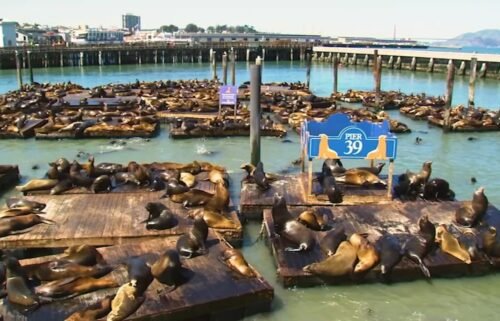Preparations being made should bird flu make way to Utah dairy cattle
KSTU, GOOGLE EARTH, CNN
By Mythili Gubbi
Click here for updates on this story
SALT LAKE CITY (KSTU) — The day after it was reported that a person in Texas became infected with bird flu from dairy cattle, the state of Utah is preparing for any and all possibilities that could come west.
Utah is used to similar situations, most recently, losing millions of birds two years ago during a deadly avian flu outbreak.
“We’ve been dealing with avian influenza outbreak in birds since about 2022. And now we are starting to see cases emerging in dairy cattle,” said Bailee Woolstenhulme with the Utah Department of Agriculture and Food.
While Utah is not on the list, states that have currently reported positive cases of highly pathogenic avian influenza in dairy cows are Texas, Idaho, Kansas, Michigan and New Mexico.
“…we hope it will stay that way, in birds as well as cows or other mammals,” said Woolstenhulme.
The department is making efforts to keep local cows safe from infection.
“Rather than banning importation of cattle, we didn’t want to stop business, so we have stricter limitations of the importation of cattle; dairy cattle specifically,” explained Woolstenhulme.
Rather than a 30-day required veterinarian health check, dairy cattle must now be checked within 7 days of importation, and the veterinarian has to sign a statement saying that they are not exhibiting any symptoms of the disease.
“Up until now, when [dairy cattle] get sick with avian influenza, there’s a sharp drop in milk production and in feed intake, and their milk turns to a thick yellow, and so there’s off-coloration and consistency of the milk,” said Bruce Richards, a Dairy Extension Specialist at Utah State University.
Unlike when birds fall sick with the highly pathogenic avian influenza, cows have been able to recover.
“Thankfully, depopulation is not necessary for cattle as it is not deadly to the cattle as it is with birds, and it is not as easily transmissible with cattle,” said Woolstenhulme. “So we will issue quarantines and vet checks on those farms if they do happen to have cases.”
Experts hope the outbreak wont impact milk prices in grocery stores.
“So far, the impact on milk production has been minimal,” said Richards. “Only 10% of cows have been affected by it. We also tend to see in spring time, we have a seasonal surplus of milk, and so with the number of dairies that have been infected, the impact on milk production has been minimal.”
Farmers can take the following actions to help prevent the spread of infection:
– Limit number of farm visitors
– Wash vehicles that come on and off farm
– Change boots
– Wear boot covers
The Utah Department of Agriculture and Food says there is no known risk to public health, but should think they have cows showing symptoms, they should contact the state vet’s office to report the issue.
Please note: This content carries a strict local market embargo. If you share the same market as the contributor of this article, you may not use it on any platform.



